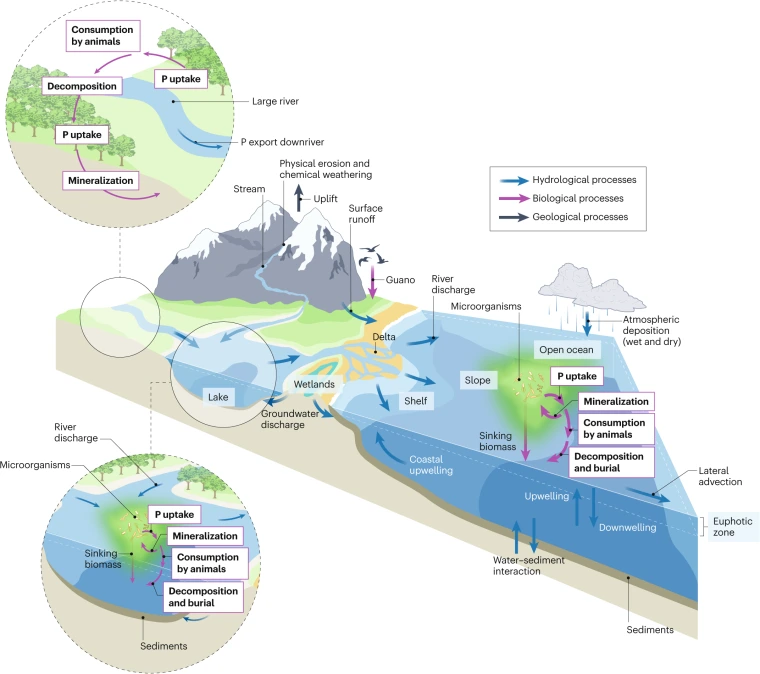The microbial phosphorus cycle in aquatic ecosystems
Solange Duhamel, Associate Professor, MCB, recently had a paper published in Nature Reviews Microbiology. Dr. Duhamel is an aquatic microbiologist and biogeochemist, specializing in the abundance, diversity and activity of aquatic microbes in the ocean, as well as in lakes, rivers, wetland ecosystems and extreme environments. Dr. Duhamel studies the role of microorganisms as agents of biogeochemical transformations, and how microbes adapt to different environments and respond to stress.
Her recent paper emphasizes the critical role of phosphorus in sustaining life and its essential movement through aquatic ecosystems for the habitability of our planet. This process, driven largely by microorganisms, is more complex than previously understood. Recent discoveries show that these organisms create and transform new phosphorus compounds and influence the cycle in surprising ways, with human activities increasingly affecting aquatic ecosystems. Studying how microorganisms manage phosphorus at the cellular level offers valuable insights and may help us address environmental changes. This research spans diverse fields, including molecular biology and global environmental modeling, aiming to better understand and respond to these changes.


